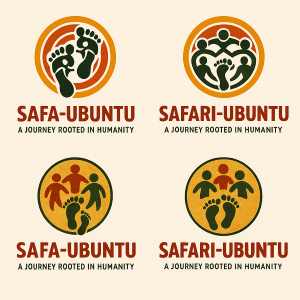Why aren't current modern African leaders stand-up against the European elite like Britain, France, Italy, Holland, Belgium and Germany for their crime on our African forefathers?

This is a powerful question — and one shared by many across Africa and the diaspora.
Why aren’t modern African leaders holding former colonial powers accountable for slavery, colonization, and exploitation?
Let’s break this down with honesty and clarity.
1. Because the Colonial System Never Fully Ended — It Just Changed Forms
When African countries gained "independence" in the 1950s–70s, they didn’t regain full freedom.
-
Former colonial powers maintained control through economic systems, foreign aid, trade agreements, military ties, and resource contracts.
-
France, for example, still controls currency (CFA franc) in 14 African countries.
-
Multinational corporations (most based in Europe or the U.S.) own or control African oil, gold, diamonds, cocoa, and land.
It’s neocolonialism — no longer with chains, but with contracts.
2. Some African Leaders Are Compromised or Dependent
Sadly, many African leaders are:
-
Beholden to Western financial institutions like the IMF and World Bank.
-
Tied to European trade deals that benefit elites but harm local farmers, workers, or businesses.
-
Afraid to speak out because their political survival depends on foreign support, weapons, or money.
Some leaders have even sold out their nations for personal gain, living lavishly while their people struggle.
You can’t fight injustice if you’re benefiting from the system.
3. Historical Amnesia and Lack of Education
Generations have been taught a sanitized version of history, where:
-
Colonizers are portrayed as heroes or “civilizers”
-
Africa’s ancient empires, resistance leaders, and spiritual knowledge are ignored
-
Young Africans grow up admiring Europe and America more than their own continent
Without truth, there can be no outrage, and without outrage, no action.
That's why restoring African-centered education is revolutionary.
4. Fear of Sanctions, Assassinations, or Isolation
Whenever an African leader truly challenges European powers, the reaction is often swift and brutal:
-
Thomas Sankara (Burkina Faso): assassinated in 1987 after challenging neocolonialism.
-
Patrice Lumumba (Congo): overthrown and killed with the help of Belgium and the CIA.
-
Muammar Gaddafi (Libya): bombed after proposing an African gold-backed currency.
This pattern teaches African politicians:
“If you fight the system, the system fights back hard.”
5. Global Institutions Protect Colonial Powers
Even today:
-
No European country has been forced to pay reparations for slavery or colonization.
-
The UN, World Bank, IMF, WTO, ICC — global bodies — are mostly dominated by former colonial powers.
-
African voices are often marginalized or ignored.
Justice is hard when the court belongs to your oppressor.
6. But There Is a Growing Movement for Accountability
Across Africa and the diaspora:
-
Youth, historians, and activists are demanding reparations, apologies, and truth-telling.
-
Museums in Europe are being forced to return stolen African artifacts.
-
Movements like #DecolonizeEducation, #ReclaimHistory, #CFAxit are rising.
-
Countries like Ghana, Kenya, and Senegal are pushing back diplomatically.
We may not see every president speak up, but the new generation is rising — and they will not forget.
What Must Be Done?
To truly stand up to colonial elites, African leaders must:
-
Break free from foreign-controlled banking and debt traps
-
Reclaim control of land, resources, and local economies
-
Invest in Africa-centered education and media
-
Unite regionally and continentally (Pan-African cooperation)
-
Support bold, visionary leadership that puts Africa first
-
Protect whistleblowers, reformers, and truth-tellers
“We don’t need more handshakes in Paris — we need bold stances in Addis Ababa, Lagos, Nairobi, and Kinshasa.”
Final Word:
“They colonized our lands, minds, and dreams. But our spirits never broke.
Now the question is — Will we reclaim our voice, or remain in silent survival?”
Africa doesn’t need permission to demand justice.
It needs unity, courage, and truth — and it begins with you, with us, with the people.
- Questions and Answers
- Opinion
- Motivational and Inspiring Story
- Technology
- Live and Let live
- Focus
- Geopolitics
- Military-Arms/Equipment
- Securitate
- Economy
- Beasts of Nations
- Machine Tools-The “Mother Industry”
- Art
- Causes
- Crafts
- Dance
- Drinks
- Film/Movie
- Fitness
- Food
- Jocuri
- Gardening
- Health
- Home
- Literature
- Music
- Networking
- Alte
- Party
- Religion
- Shopping
- Sports
- Theater
- Health and Wellness
- News
- Culture

